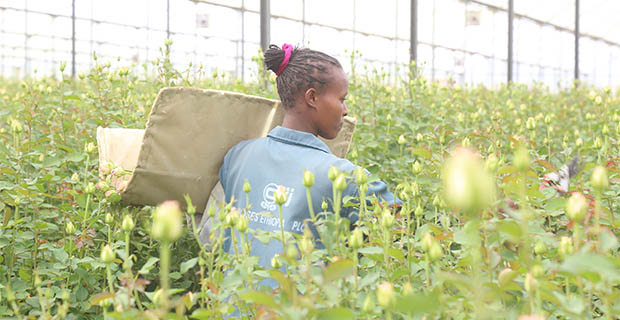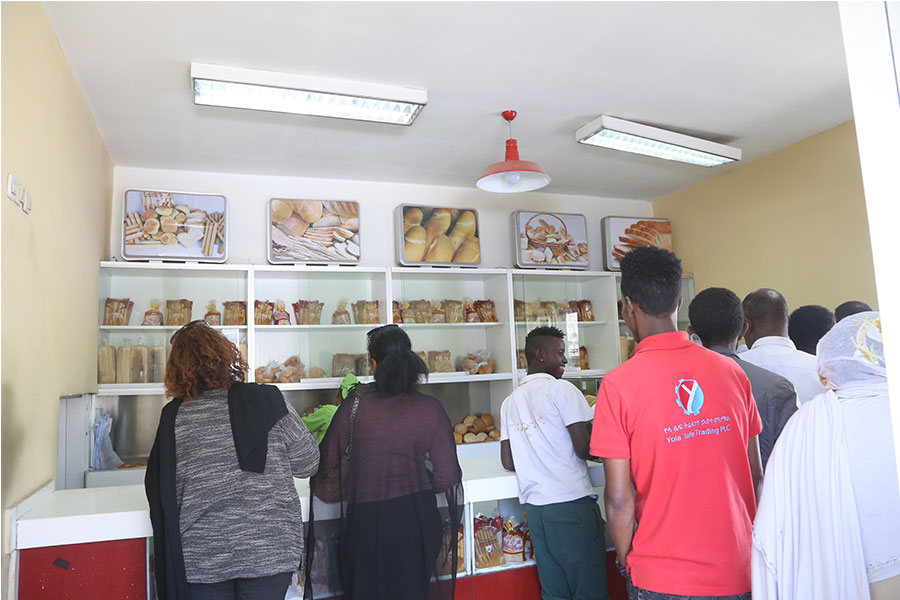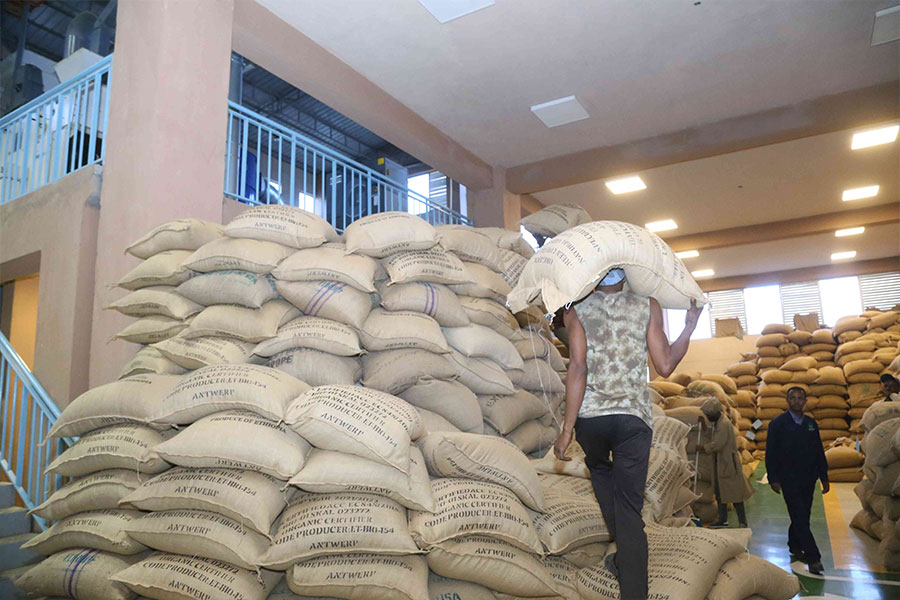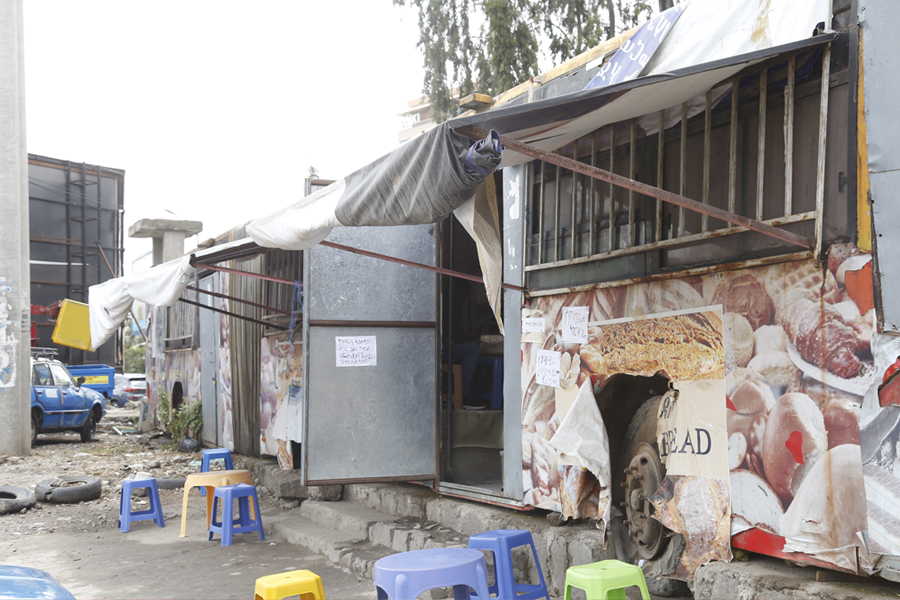
The first institute of higher education that will deliver courses and conduct research solely focused on the coffee industry is setting foot in Ethiopia with an investment of 50 million euros.
The handily named Coffee College, scheduled to start delivering courses next year, will offer six courses in the undergraduate Coffee Industry programme: Roasting, Trading and Branding; Metal & Engineering; Power & Decentralized Power Generation; Water & Water Distribution; Media; and Nursing & Kindergarten. After finishing the first four semesters in Ethiopia, students will go to Europe for six months to pursue the remaining courses.
The College, which has been undergoing preparations to be opened in Ethiopia for the last three years, will also provide inspection, testing and verification of coffee services. It offers a diploma and bachelor's degree after two and four years, respectively. An additional two years is required for a master's degree.
With a campus in Austria and its Scientific & Research Headquarters in Munich, Germany, the College plans to build an administrative headquarters in Addis Abeba. The construction of the administrative building is planned to commence at the beginning of 2021. In the meantime, the college expects to start classes beginning the first quarter of 2021 using the infrastructure and facilities of existing universities and colleges, including Addis Abeba University.
The owners of the College, who run a coffee roasting business in Austria, chose Ethiopia as its destination because of the tremendous potential for the coffee industry, according to Erich Fussl, president of the College, which partnered with Technical University of Munich (TUM) to craft the curriculum.
Coffee is the major foreign currency generator for the country. With more than 400 coffee exporters and 30 import-export companies, the last fiscal year of the country saw a gusher with 290,125tn of coffee sold and 854.2 million dollars generated. This represents a 17.4pc boost in volume and a 12pc increase in value from the previous fiscal year.
The College will have academic and commercial wings. The academic wing is responsible for the university programme delivery, while the commercial wing is in charge of utilising the knowledge and findings of the university programme for business purposes. All developments, findings and patents will be collected in the Special Investment Fund, a department that is responsible for the commercial utilisation of intellectual property.
It plans to source funds for research and development projects mainly from the European Union, as well as from the Malaysian Sovereign Wealth Fund, the World Bank, the United Nations, the Asian Development Bank and the African Union.
The Intellectual Property Fund, the core element of the college, will bring the funding parties together and receive all intellectual property rights that come out of the Coffee College. The staff and students of the College will be required to pledge their intellectual property rights to the Fund. But new findings will be rewarded and the responsible individuals will benefit from the commercialisation of the discoveries they make.
The scientific research from the college will be used for commercialisation, and the raised funds will be used for advanced scientific research, according to Erich.
"If well-exploited, the coffee industry is very important for every sector," said Erich. "The College wants to actualise this."
Besrat Belay, managing director of Chaka Coffee, a local coffee roasting company, says that the sector is facing a shortage of expertise and professionals. He believes the College can play a great role in alleviating these challenges.
"The sector cannot compete in the global market due to the lack of knowledge and skills in the coffee industry," Besrat said. "This will enable the business to create more profit and more employment opportunities."
The opening of the College may encourage other investors to engage in research and development projects in the sector, according to Zerayakob Belete, managing director at Nexus Investment Solutions, an investment and business consultancy open for over a decade.
The unit value of Ethiopian coffee in the international market has been declining. A kilogram of Ethiopian coffee was sold for 3.90 dollars three years ago, but it dropped to 3.30 dollars in the 2018/19 fiscal year.
This is because the coffee industry of the country has lagged behind in competing with foreign counterparts in terms of value addition, argued Zerayakob.
"Over 90pc of Ethiopian coffee exports is raw coffee without any value added," says Zerayakob. “The Ethiopian coffee industry is backwards, lacks research and development, but has huge untapped potential."
The establishment of the Coffee College would certainly be vital in alleviating the challenges, according to Zerayakob.
“Research and development are the fundamentals of innovation and better competition by the sector,” Zerayakob said.
PUBLISHED ON
Sep 27,2020 [ VOL
21 , NO
1065]

Covid-19 | Apr 01,2020

Photo Gallery | Apr 26,2019

Agenda | Feb 09,2019

Radar | Jun 18,2022

Radar | Aug 26,2023

Radar | Apr 15,2023

Fortune News | Aug 26,2023

Radar | Sep 19,2020

Commentaries | Oct 20,2024

Fortune News | Jul 22,2023

Dec 22 , 2024 . By TIZITA SHEWAFERAW
Charged with transforming colossal state-owned enterprises into modern and competitiv...

Aug 18 , 2024 . By AKSAH ITALO
Although predictable Yonas Zerihun's job in the ride-hailing service is not immune to...

Jul 28 , 2024 . By TIZITA SHEWAFERAW
Unhabitual, perhaps too many, Samuel Gebreyohannes, 38, used to occasionally enjoy a couple of beers at breakfast. However, he recently swit...

Jul 13 , 2024 . By AKSAH ITALO
Investors who rely on tractors, trucks, and field vehicles for commuting, transporting commodities, and f...

Jun 28 , 2025
Meseret Damtie, the assertive auditor general, has never been shy about naming names...

Jun 21 , 2025
A well-worn adage says, “Budget is not destiny, but it is direction.” Examining t...

Jun 14 , 2025
Yet again, the Horn of Africa is bracing for trouble. A region already frayed by wars...

Jun 7 , 2025
Few promises shine brighter in Addis Abeba than the pledge of a roof for every family...